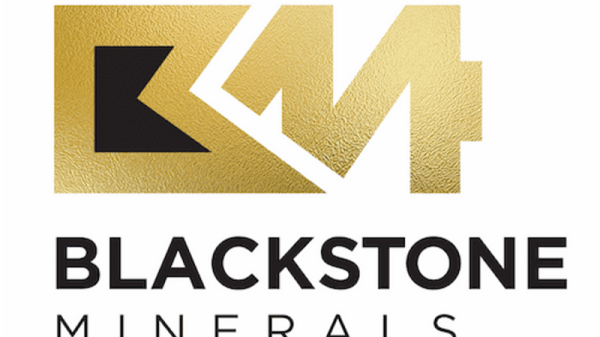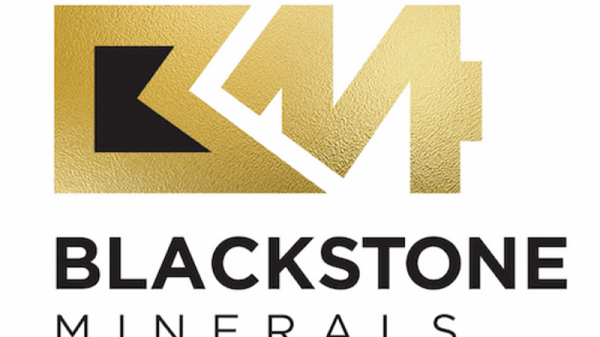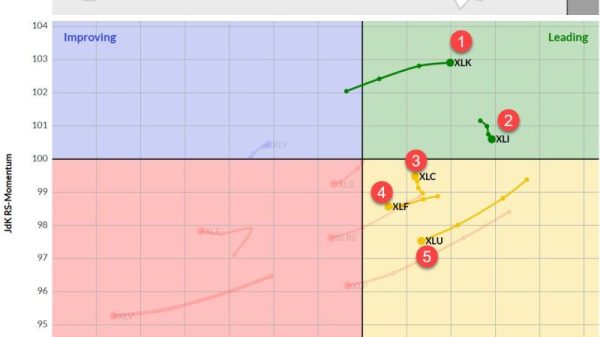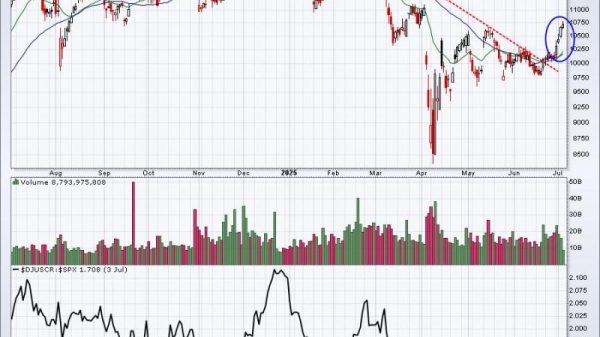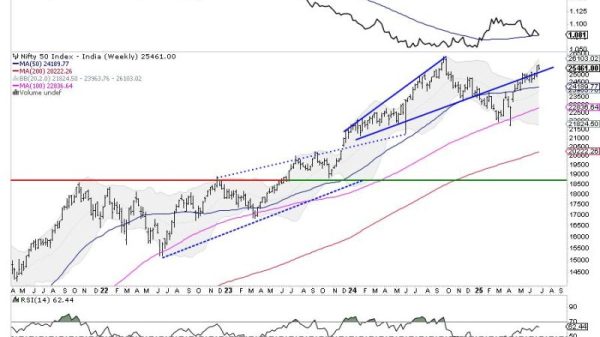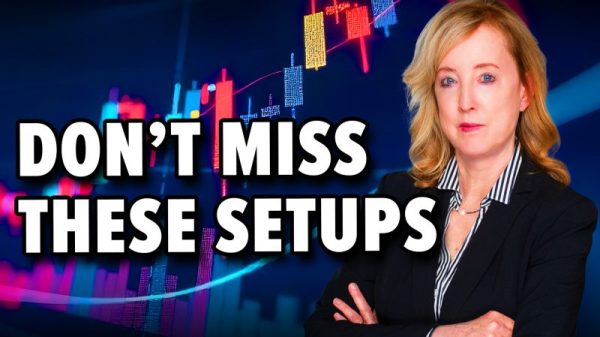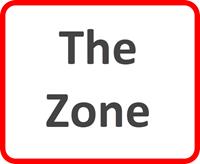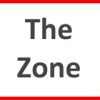The S&P/TSX Venture Composite Index (INDEXTSI:JX) surged 21.87 points last week to close at 571.60.
The United States Department of Labour Statistics released the personal consumer expenditure (PCE) figures this past Thursday (February 29). One of the key indicators used by the Federal Reserve to track inflation rates, the PCE saw an increase of 2.4 percent in January. The increase showed inflation numbers were continuing to cool and were getting closer to the Fed’s 2 percent target rate.
Statistics Canada released its annual report on shipments and the value of shipments of metallic and non-metallic minerals this past Wednesday (February 28). The data indicated there were declines in the production of copper and iron in 2023 compared to 2022, with a decrease of 812 metric tons (MT) of copper and 5.61 million MT of iron concentrates.
However, gold and nickel both saw increases in their production with gold seeing gains of 3,109 kilograms and nickel production climbing by 36,553 MT over 2022. Shipments for all metals saw increases over 2022 except for copper, which saw a precipitous decline of 106,034 MT.
The agency also released gross domestic product numbers for December this past Thursday (February 29), which reported there was no overall change from the previous month. On an industry level, the mining, quarrying and oil and gas extraction sector saw 1.5 percent growth with oil and gas leading the way with a 2.4 percent gain. This marks the third consecutive month of gains in the resource sector.
How have small-cap resource stocks fared on the TSXV this past week? Here are the top 5 gainers.
1. Sandfire Resources America (TSXV:SFR)
Weekly gain: 260 percent; market cap: C$286.54 million; current share price: C$0.27
Sandfire Resources America is a copper development company focused on its Black Butte copper project located east of Helena, Montana, in the US. In 2021, a state district court revoked the company’s mine operating permit for Black Butte, halting construction activities of the underground mine.
Sandfire describes the project as one of the highest grade undeveloped copper deposits in the world; a mineral resource estimate for the project’s Johnny Lee deposit completed in 2020 reported measured and indicated resources of 10.9 million MT grading 2.9 percent copper for a total of 311,000 MT contained copper.
Shares in Sandfire soared this past Monday (February 26) following a decision by the Montana Supreme Court to reinstate the company’s mine operating permit. The win is a crucial step for Sandfire to continue the construction of its mine.
2. Q2 Metals (TSXV:QTWO)
Weekly gain: 125.64 percent; market cap: C$34.43 million; current share price: C$0.44
Q2 Metals is a lithium and gold exploration company with operations in the Eeyou Itschee James Bay region of Québec, Canada, and in Queensland, Australia.
Its flagship asset is the Mia lithium project, which consists of 171 mineral claims. Exploration at the site began in 2023, with surface mapping taking place in June and its inaugural drill program commencing in October. Six kilometers north of Mia, the company also owns the Stellar lithium project, which consists of 77 claims covering 3,972 hectares.
The company’s lone Australian asset is the Big Hill gold project, which includes the historic mines Big Hill, Queenslander, Monte Cristo, and Sultan and Taylor.
Q2 saw gains this past Thursday when it announced it had acquired 100 percent of the Cisco lithium property located in the Eeyou Itschee James Bay region. The property covers an area of 11,374 hectares and hosts 222 claims. Historical exploration at the site has discovered intervals of 1.27 percent lithium over 57.8 meters and 1.21 percent lithium over 115.4 meters.
3. Sirios Resources (TSXV:SOI)
Weekly gain: 114.29 percent; market cap: C$16.1 million; current share price: C$0.075
Sirios Resources is a gold and lithium exploration company with assets located in the Eeyou Istchee James Bar region of Quebec, Canada.
The company’s flagship Cheechoo gold project covers 81 square kilometers and is comprised of 156 mining claims over two blocks. The latest mineral resource estimate from 2022 reported an indicated and inferred resources totaling 1.9 million ounces of gold, with 1.4 million in the indicated category.
Shares in Sirios saw gains following a release this past Wednesday when the company reported that the first drill hole of 2024 at Cheechoo’s Eclipse target intersected visible gold at a depth of between 256.7 meters and 258 meters. The company is currently conducting a 1,000 meter drill program aimed at including Eclipse in an updated mineral resource estimate later this year.
4. Frontier Lithium (TSXV:FL)
Weekly gain: 109.41 percent; market cap: C$154.79 million; current share price: C$0.89
Frontier Lithium is a lithium exploration and development company with assets located in Northwestern Ontario, Canada.
Its flagship Pak project, acquired in 2013, consists of 1,261 mining claims covering 12,121 hectares and hosts a lithium, cesium and tantalum-bearing complex. In the pre-feasibility report for Pak from May 2023, mineral resource estimates for the site showed measured and indicated pit-constrained resources of 5.42 million MT grading 1.99 percent lithium oxide for a total of 108,036 MT of lithium oxide.
Frontier’s most recent announcement came on February 22, when it released its Q3 financial statement. In the release, the company stated it was in a good financial position with C$15.5 million cash balance and had received a C$2 million funding grant from the Northern Ontario Heritage Fund to advance lithium chemicals research. The company also reported it had awarded a contract to DRA Americas to complete the mine and mill portion of its definitive feasibility study.
5. Omai Gold Mines (TSXV:OMG)
Weekly gain: 69.23 percent; market cap: C$98.62 million; current share price: C$0.68
Omai Gold Mines is a gold exploration company focused on the development of its namesake gold project in Guyana.
The project consists of a 4,590 acre prospecting license and two mining permits for medium-scale operations over 1,519 acres. The site hosts two primary gold deposits, Wenot and Gilt Creek.
The most recent announcement from the company was the release of an updated mineral resource estimate on February 8. The company reported indicated and inferred totals of 4.26 million ounces of gold, with 2.45 million ounces hosted at the Wenot deposit and 1.82 million ounces at Gilt Creek.
FAQs for TSXV stocks
What is the difference between the TSX and TSXV?
The TSX, or Toronto Stock Exchange, is used by senior companies with larger market caps, while the TSXV, or TSX Venture Exchange, is used by smaller-cap companies. Companies listed on the TSXV can graduate to the senior exchange.
How many companies are listed on the TSXV?
As of September 2023, there were 1,713 companies listed on the TSXV, 953 of which were mining companies. Comparatively, the TSX was home to 1,789 companies, with 190 of those being mining companies.
Together the TSX and TSXV host around 40 percent of the world’s public mining companies.
How much does it cost to list on the TSXV?
There are a variety of different fees that companies must pay to list on the TSXV, and according to the exchange, they can vary based on the transaction’s nature and complexity. The listing fee alone will most likely cost between C$10,000 to C$70,000. Accounting and auditing fees could rack up between C$25,000 and C$100,000, while legal fees are expected to be over C$75,000 and an underwriters’ commission may hit up to 12 percent.
The exchange lists a handful of other fees and expenses companies can expect, including but not limited to security commission and transfer agency fees, investor relations costs and director and officer liability insurance.
These are all just for the initial listing, of course. There are ongoing expenses once companies are trading, such as sustaining fees and additional listing fees, plus the costs associated with filing regular reports.
How do you trade on the TSXV?
Investors can trade on the TSXV the way they would trade stocks on any exchange. This means they can use a stock broker or an individual investment account to buy and sell shares of TSXV-listed companies during the exchange’s trading hours.
Data for this 5 Top Weekly TSXV Performers article was retrieved at 1:00 p.m. PST on March 1, 2024, using TradingView’s stock screener. Only companies with market capitalizations greater than C$10 million prior to the week’s gains are included. Companies within the non-energy minerals and energy minerals were considered.
Article by Dean Belder; FAQs by Lauren Kelly.
Securities Disclosure: I, Dean Belder, hold no direct investment interest in any company mentioned in this article.
Securities Disclosure: I, Lauren Kelly, hold no direct investment interest in any company mentioned in this article.

